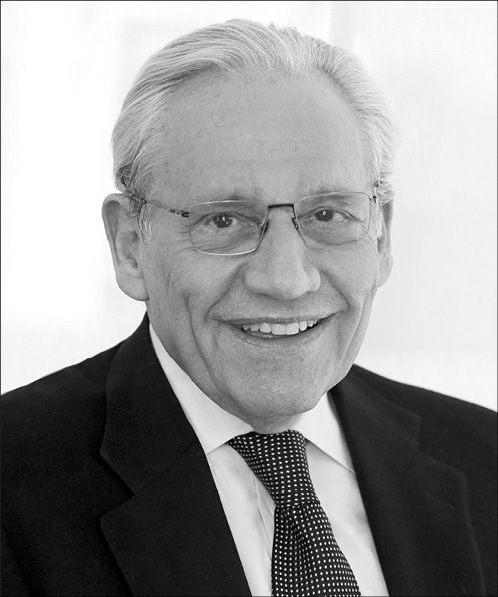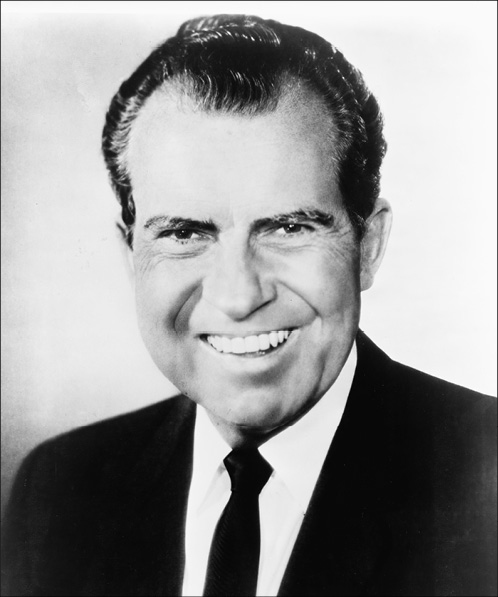14 BOB WOODWARD on Richard M. Nixon and Executive Power
“He had the idea that he was untouchable. He was president of the United States. He thought no one would ever find out about these tapes, let alone get access to them.”
BOOKS DISCUSSED OR MENTIONED:
All the President’s Men (with Carl Bernstein; Simon & Schuster, 1974)
The Final Days (with Carl Bernstein; Simon & Schuster, 1976)
The Secret Man: The Story of Watergate’s Deep Throat (Simon & Schuster, 2005)
The Last of the President’s Men (Simon & Schuster, 2015)
Fear: Trump in the White House (Simon & Schuster, 2018)
Shadow: Five Presidents and the Legacy of Watergate (Simon & Schuster, 1999)
The Brethren: Inside the Supreme Court (with Scott Armstrong; Simon & Schuster, 1979)
The Commanders (Simon & Schuster, 1991)
Bush at War (Simon & Schuster, 2002)
Plan of Attack (Simon & Schuster, 2004)
Obama’s Wars (Simon & Schuster, 2010)
Bob Woodward is without doubt the best-known, most respected, and most prolific journalist/author of the past half century.
He first came to the public’s attention as the partner with Carl Bernstein in breaking and pursuing the Watergate story for the Washington Post, reporting for which the paper won the Pulitzer Prize.
These two young journalists (Woodward was twenty-nine and Bernstein was twenty-eight) demonstrated the power of persistent, focused, and investigative journalism. They had a major role in the disclosures that ultimately forced President Richard M. Nixon to resign. Bob and Carl subsequently wrote two New York Times number-one best sellers about Watergate: All the President’s Men and The Final Days.
With the publication of those books behind him, Bob Woodward has continued, for the ensuing four decades, a dual-track career—as a journalist and editor at the Post and as a best-selling book author.
Last year, he wrote Fear: Trump in the White House, a best-selling account of the Trump tenure. That was Bob Woodward’s nineteenth book.
Every single one of Woodward’s books has been a New York Times best seller—thirteen of them at number one, a record matched by no other nonfiction writer.
I have known Bob since my days working in the Carter White House in the late 1970s. He managed to obtain and write about one of my memos (written with Stu Eizenstat, then my boss) to President Carter. That was not an especially pleasant experience for me at that time. But I came to know—and greatly admire—Bob after the Carter administration ended and have interviewed him on other occasions.
His careful research, persistence, focus, hard work, and fairness are legendary. For journalists and writers about government, he is the gold standard.
In this interview, I tried to cover many of Bob’s books, though there are too many of them to do any one justice in an hourlong interview. The principal focus was on Nixon, for Bob’s work there is what launched his unrivaled career.
In the conversation, Bob Woodward recounts how, by sheer happenstance, he was in the right place at the right time. He had been working at the Washington Post for only nine months when the Watergate break-in occurred, and his editor assigned coverage of the story (thought at first to be about a normal burglary) to him and to another young reporter, Carl Bernstein.
Bob describes how he and Bernstein doggedly pursued the story—when others thought there was little real interest to it—and how they made mistakes that could have been career-ending. And their perseverance paid off. The Washington Post won a Pulitzer Prize for their work; the criminal activities surrounding the Watergate break-in (most especially the presidential cover-up) were exposed; and a president was forced to resign for the first (and so far only) time in the country’s history.
While Bob Woodward wrote best-selling books about all of Nixon’s successors—and gives his views on them in this interview—he will forever be linked with Nixon.
And he reveals that at no point did he ever meet Richard Nixon. One wonders how such a meeting might have gone.

